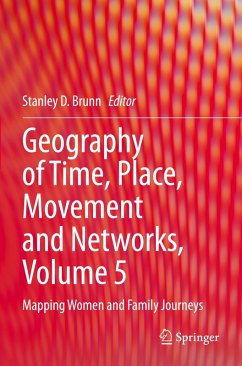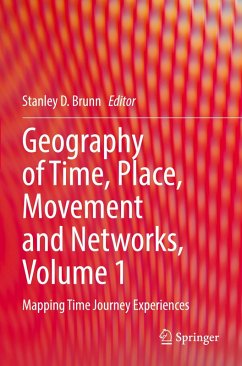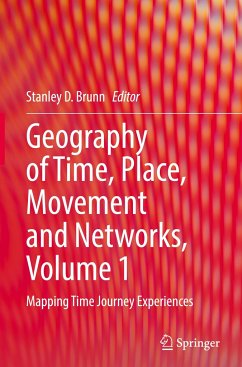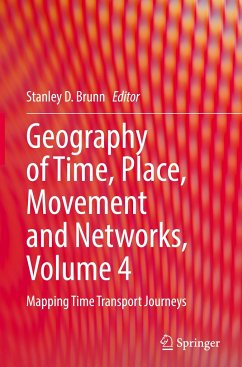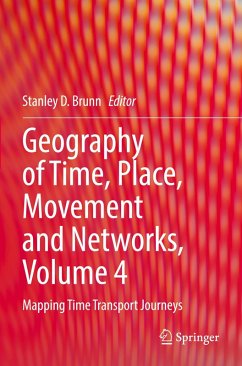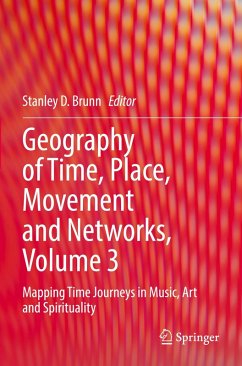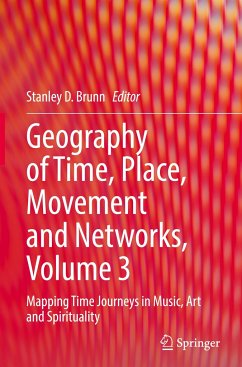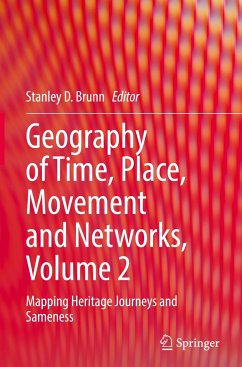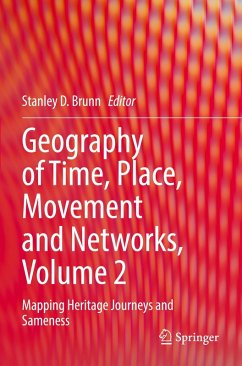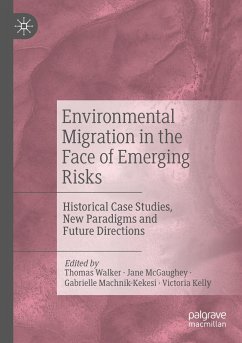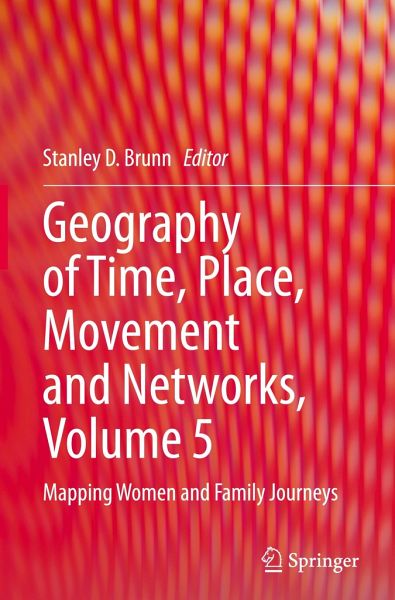
Geography of Time, Place, Movement and Networks, Volume 5
Mapping Women and Family Journeys
Herausgegeben: Brunn, Stanley D.

PAYBACK Punkte
61 °P sammeln!
This book investigates both early as well as recent accounts of journeys by women and families in African, Asian, East European, North and Latin American contexts. It discusses how places, place settings and transport routes, whether by land, sea, or air, were and remain important in the impacts these newcomers have on states and regions. The contributions to this book provide insight in laws and regulations related to women's and refugees' rights. They highlight the importance of place and location in defining rights and implementing reforms, such as the importance of the politics and the sta...
This book investigates both early as well as recent accounts of journeys by women and families in African, Asian, East European, North and Latin American contexts. It discusses how places, place settings and transport routes, whether by land, sea, or air, were and remain important in the impacts these newcomers have on states and regions. The contributions to this book provide insight in laws and regulations related to women's and refugees' rights. They highlight the importance of place and location in defining rights and implementing reforms, such as the importance of the politics and the state in identifying rights in global contexts of refugee resettlement, cross-border employment, security and reshaping human institutions as well as the changing legal landscape related to for instance women participating in the Olympic Games and in national sports. The book also touches on the worlds of family landscapes, mapping family trees, family cemeteries and redefining immigrant city mixes. As such, the book offers readers to explore past, present, and future issues faced by women and families, regardless of place or country.



